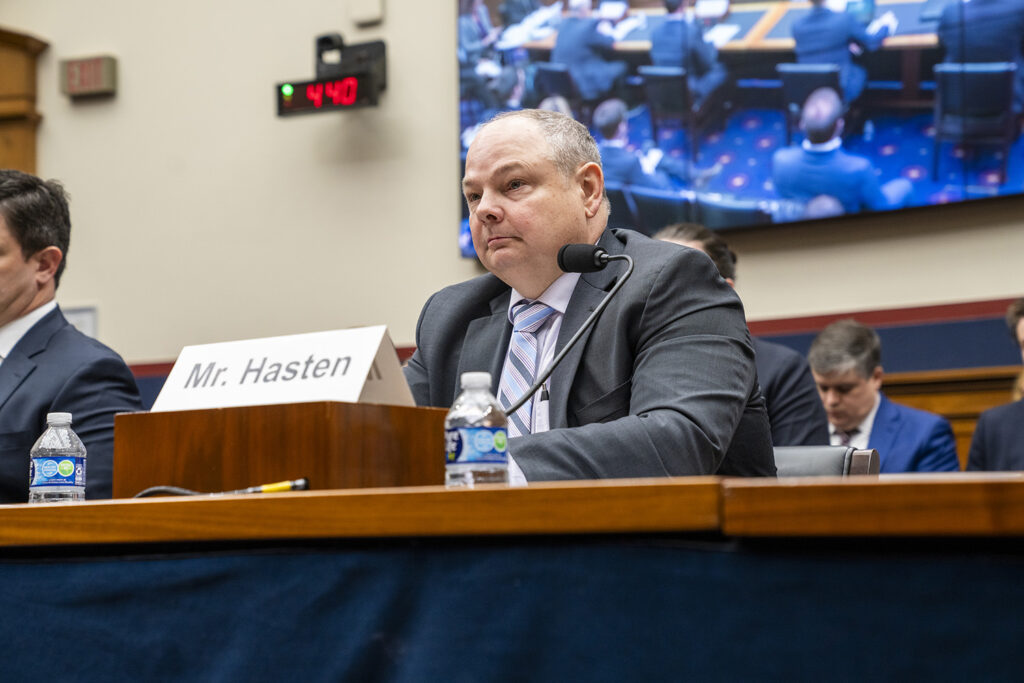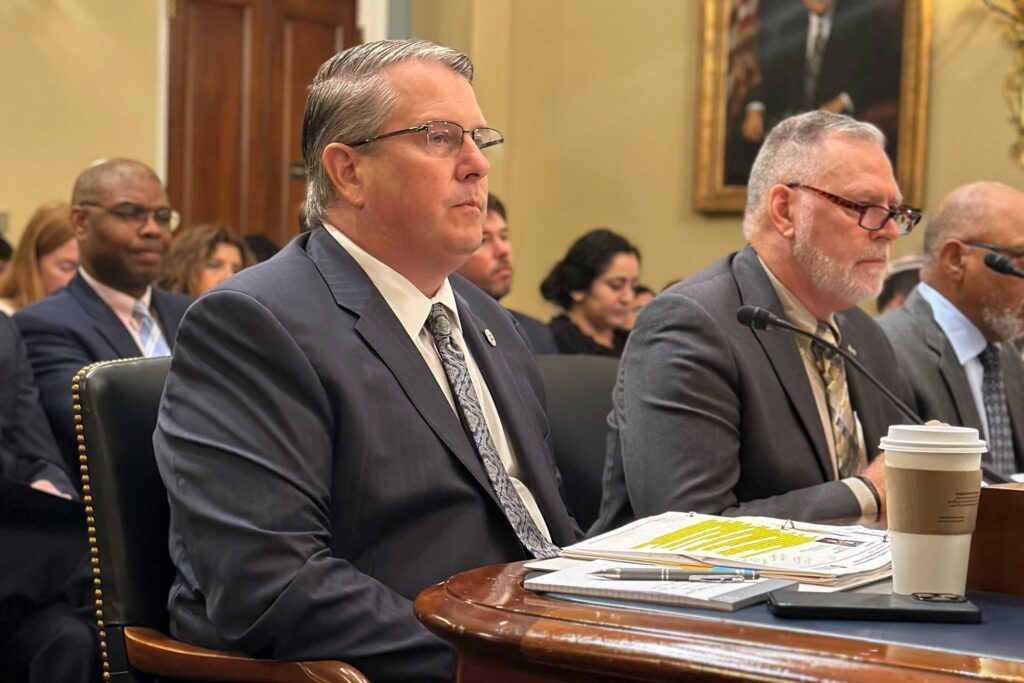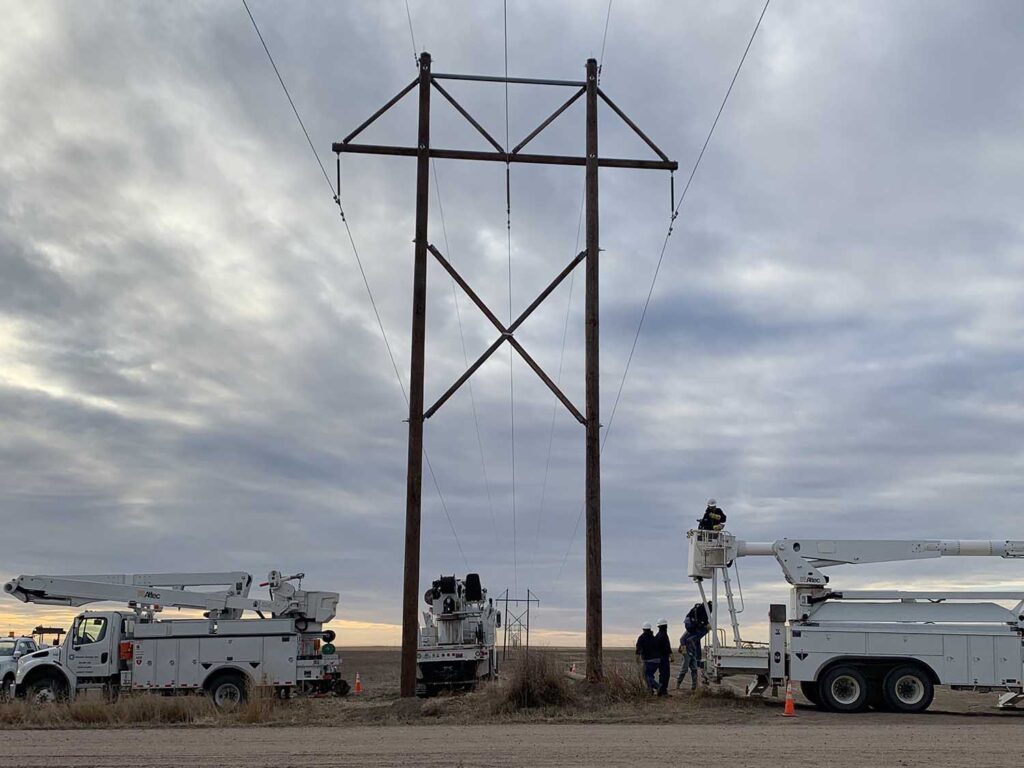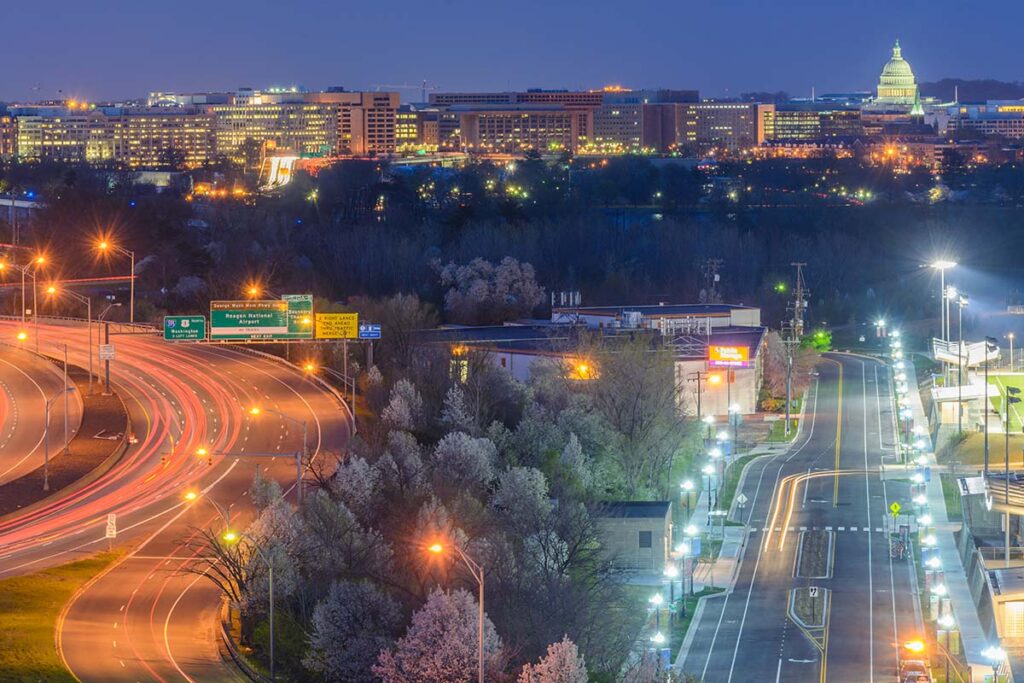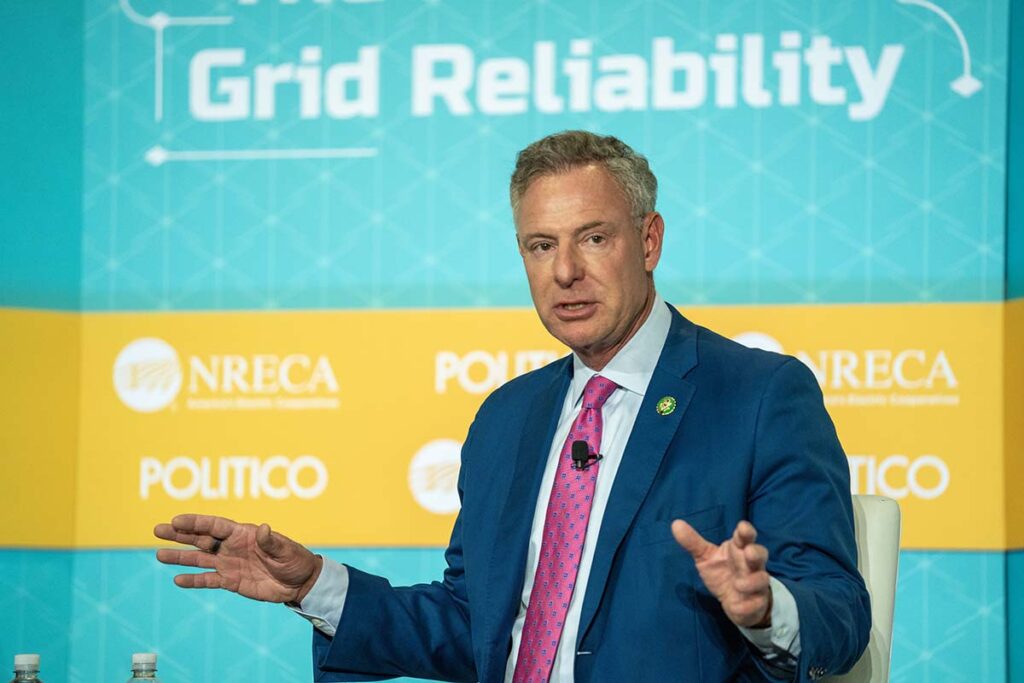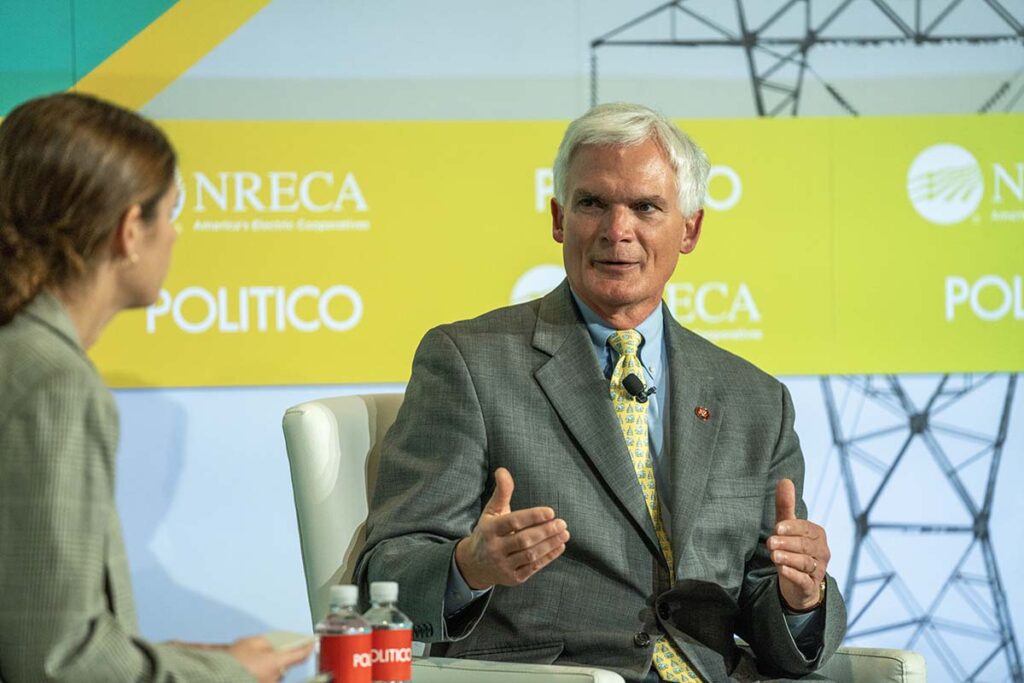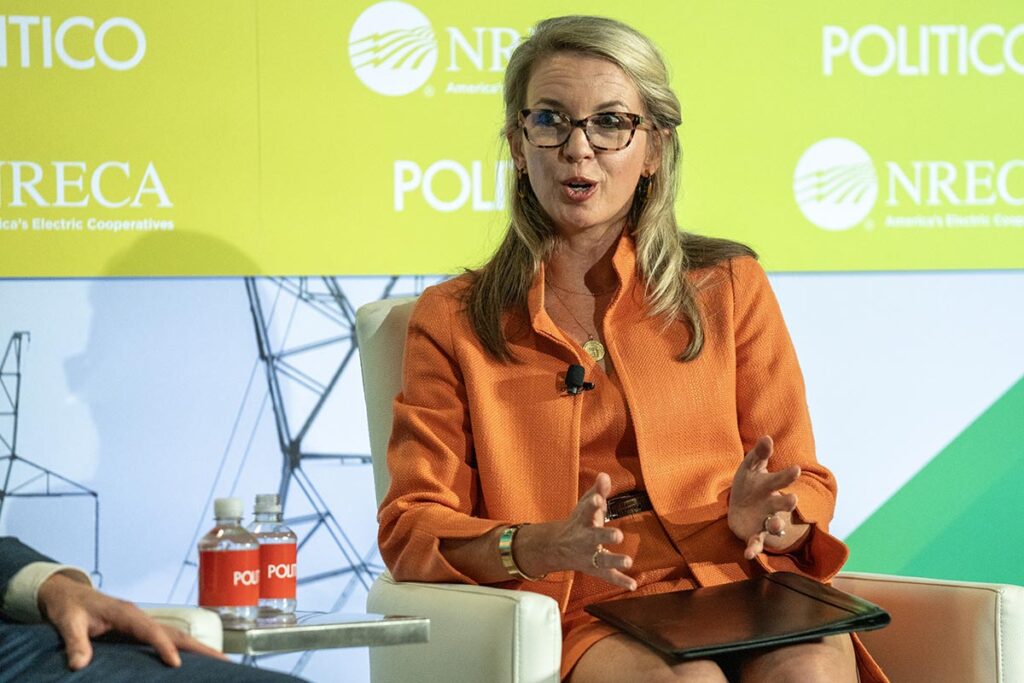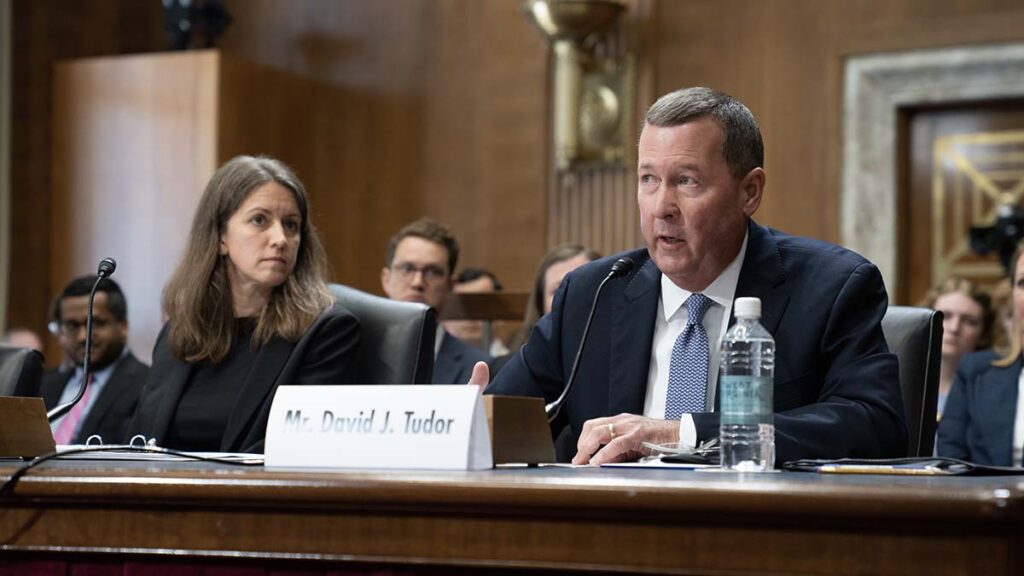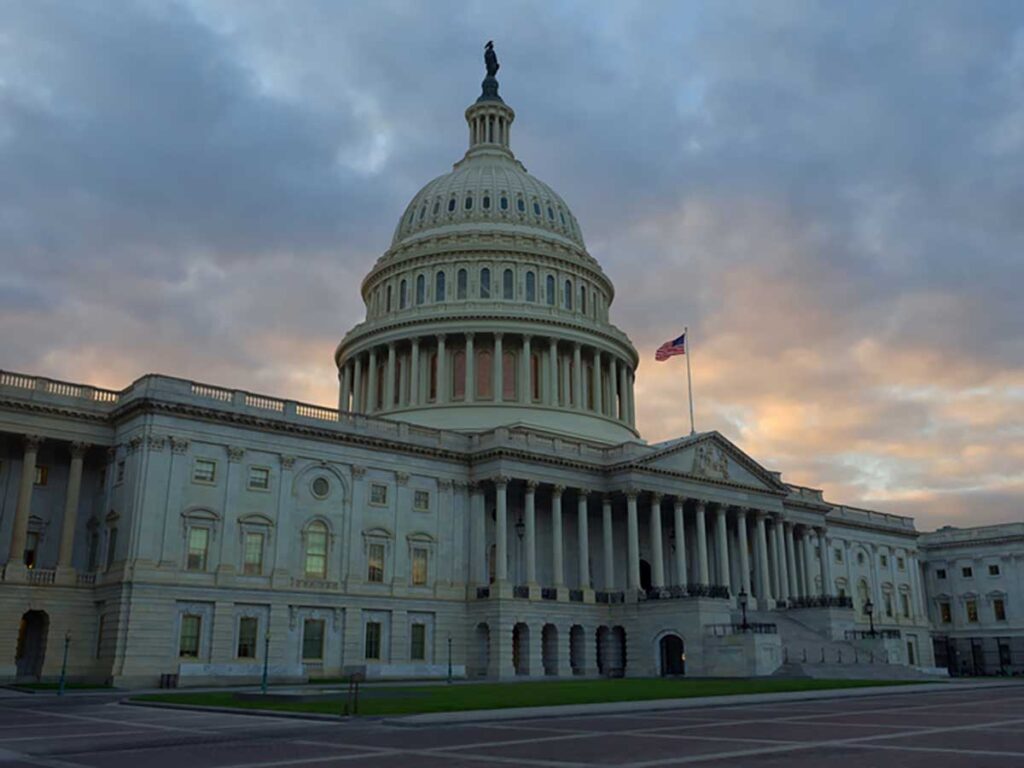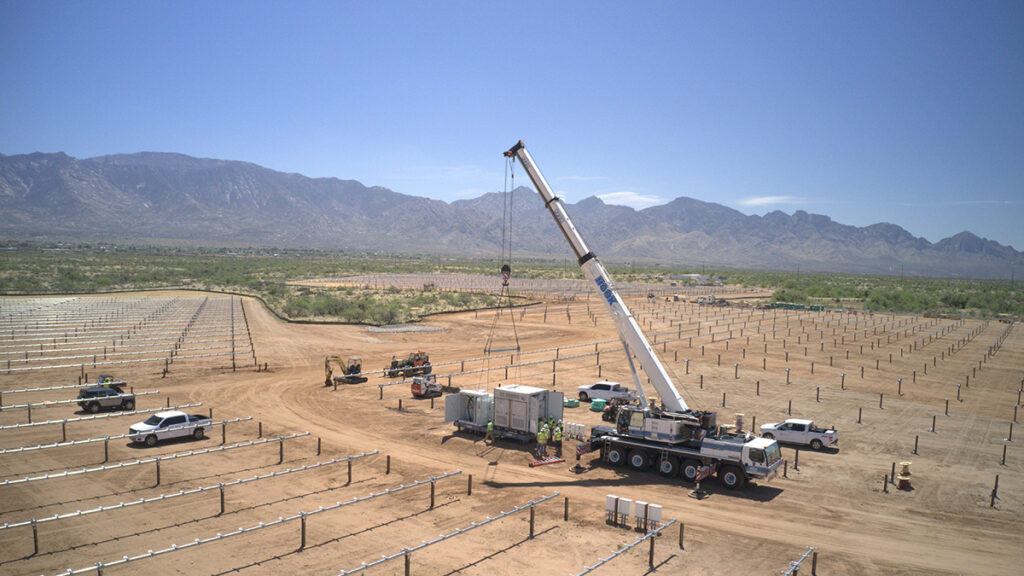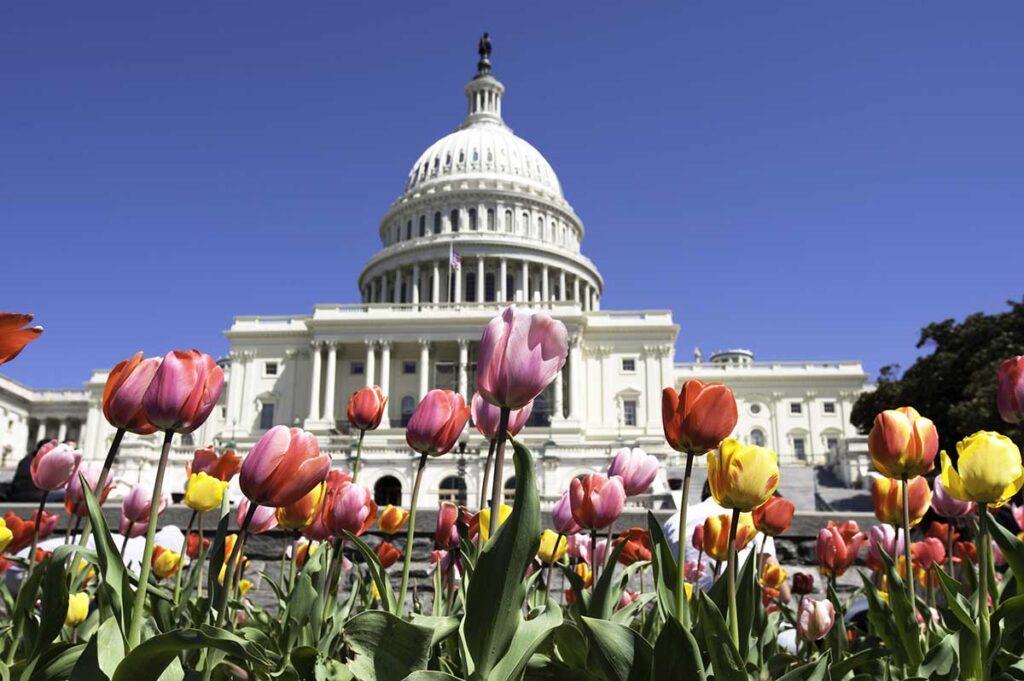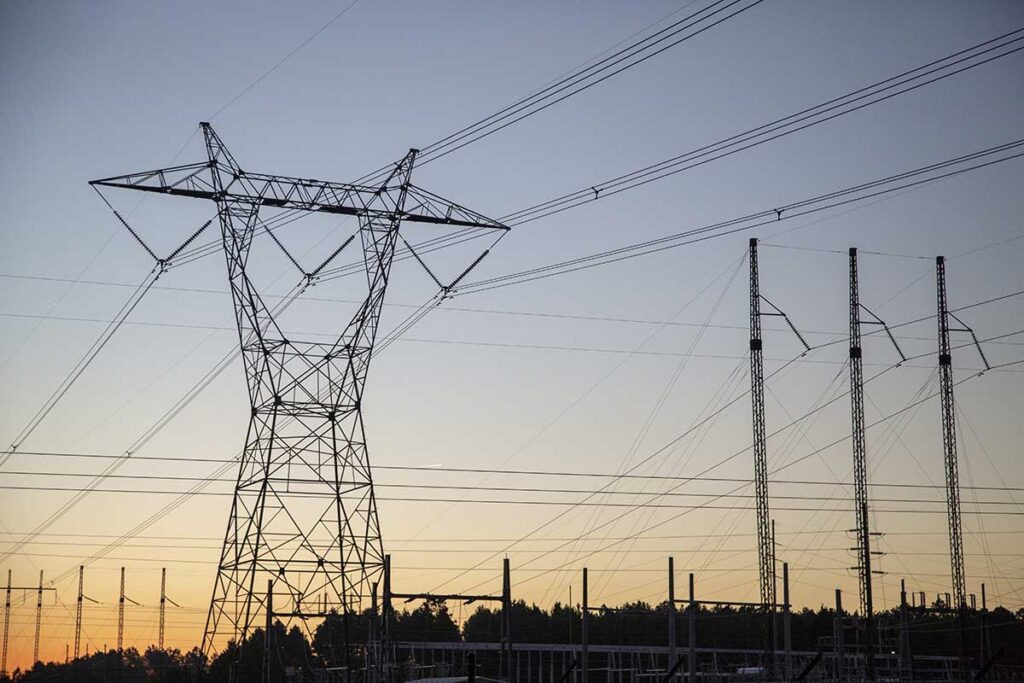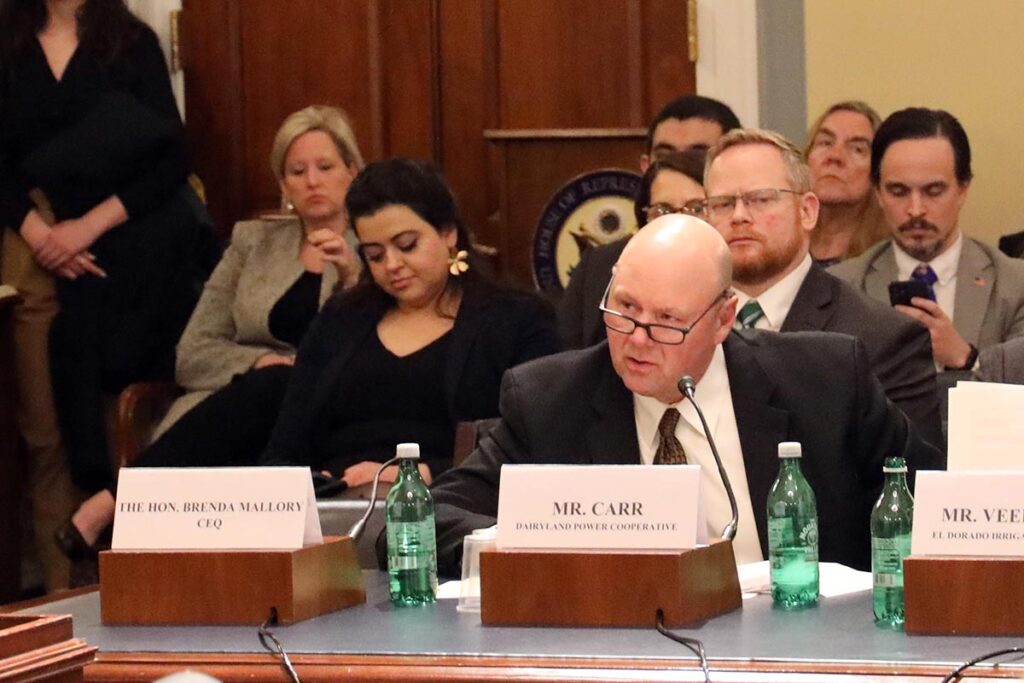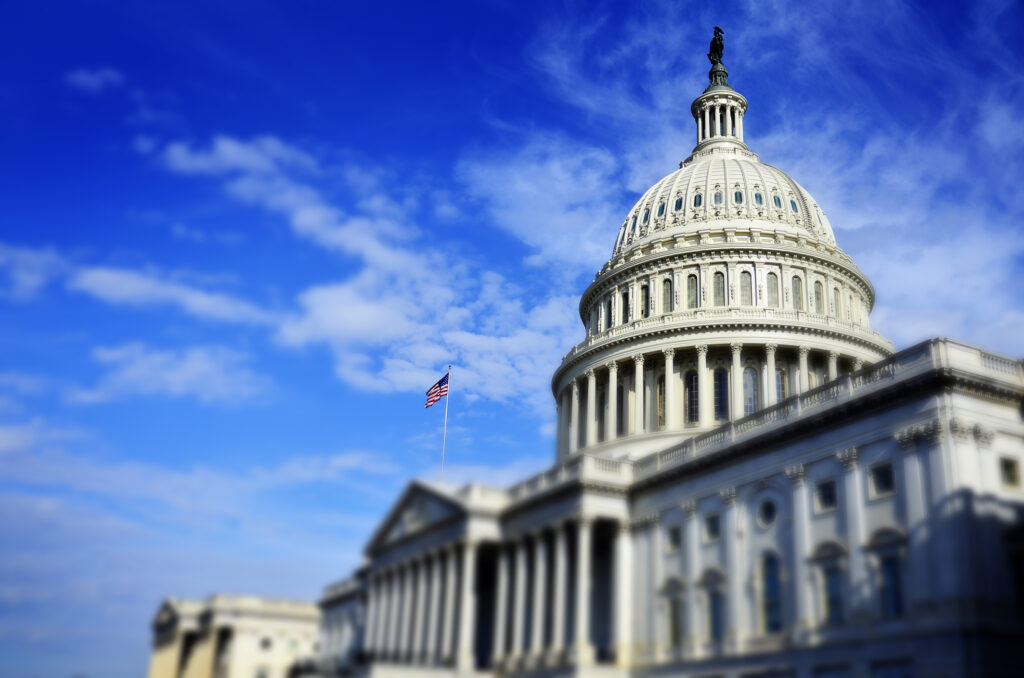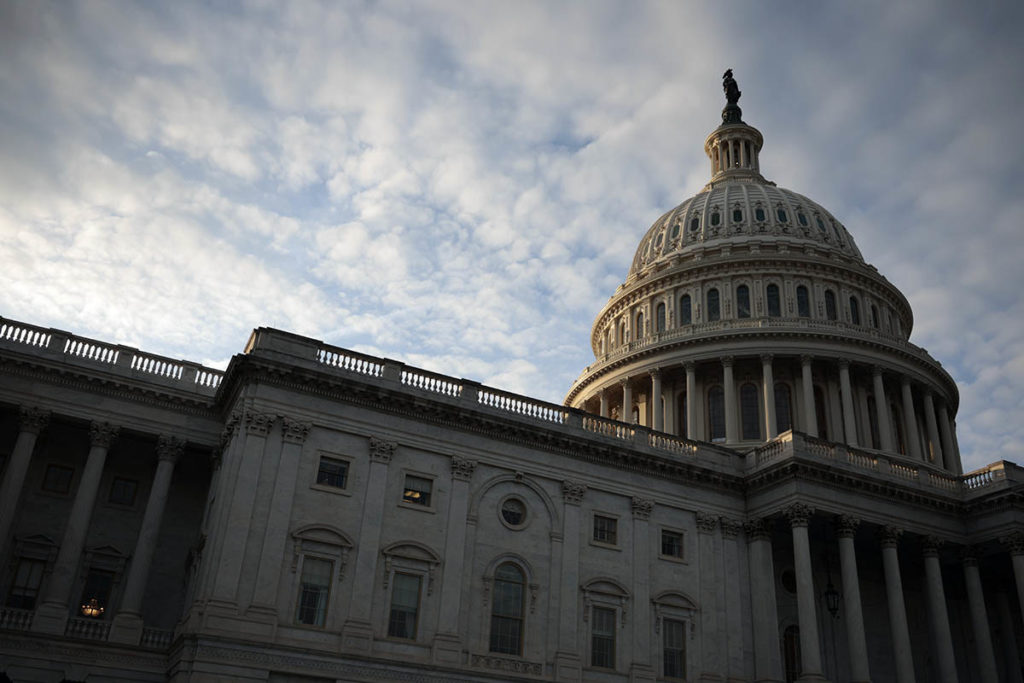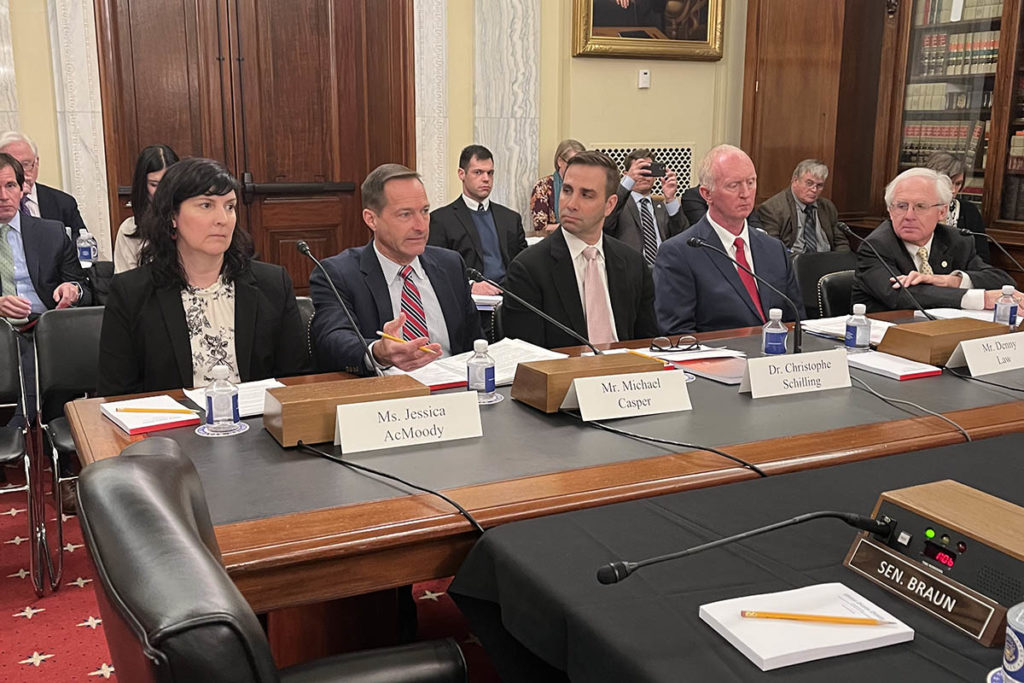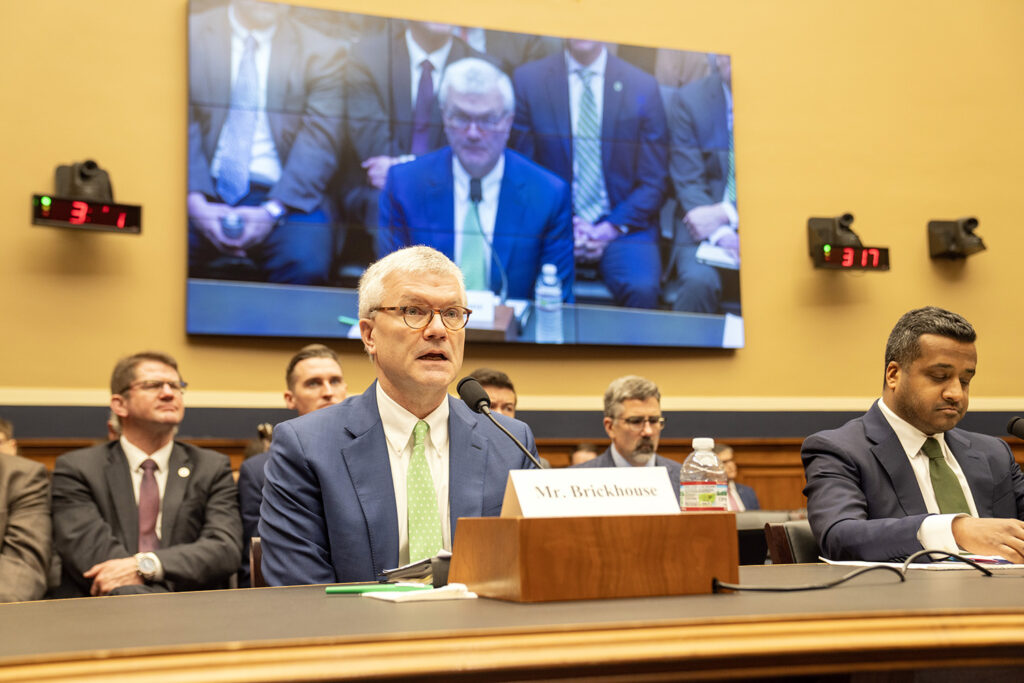
America is at an “energy crossroads,” and leadership by Congress is more critical than ever to ensure reliable, affordable power, the CEO of Basin Electric Power Cooperative told a House panel Wednesday.
“American families and businesses expect the lights to stay on at a cost they can afford,” Todd Brickhouse, CEO and general manager of the North Dakota-based generation and transmission co-op, told the House Energy and Commerce Subcommittee on Energy at a hearing on reliability. “Our nation’s energy policies must meet this fundamental expectation.”
He said Basin Electric, NRECA and America’s electric cooperatives “stand ready to work with Congress and the Trump administration on smart energy policies that advance safe, reliable and affordable power.” Specifically, Brickhouse said, co-ops are urging policymakers to:
- Support a diverse supply of energy resources to meet escalating demand for U.S. energy production and manufacturing, especially in rural areas. Basin Electric, for example, has planned new natural gas power plants, wind turbine repowering and transmission projects to serve high-growth areas in its service territory. “This balanced approach ensures reliable, affordable and environmentally responsible energy for its members,” Brickhouse said.
- Improve environmental permitting processes and cut costly, burdensome regulations—including the Environmental Protection Agency’s power plant rule—to accelerate deployment and maintenance of critical electric infrastructure.
- Ensure federal programs and resources that support electric co-op energy projects are run efficiently and effectively as co-ops invest to meet the needs of the communities they serve.
Brickhouse urged Congress to enact permitting reform that will cut down the long delays that co-ops face getting federal approval to build infrastructure and meet growing demand for electricity.
Congress passed legislation in 2023 to speed up the process for environmental reviews and allow greater applicant involvement, but more needs to be done, he said.
“Congress should also curb lengthy, costly litigation that can cause unnecessary and often indefinite delays that hold up projects that communities badly need,” Brickhouse said.
He said Basin Electric “plans to invest $12 billion in capital expenditures—more than doubling its balance sheet of assets—over the next decade.” Those investments are being made, Brickhouse said, because the co-op’s load growth over the next 10 years is projected to be about 3.3%—significantly higher than the national average of about 2.4%.
“Key developments include increased demand from cryptocurrency and data center operations, the anticipated rise of ethanol-related carbon capture and sequestration projects, and ongoing economic development in western North Dakota,” he said.
Brickhouse called on Congress to support efforts by new EPA leaders to repeal the power plant rule. The EPA rule, finalized in May 2024, seeks to aggressively limit greenhouse gas emissions from existing coal and new natural gas power plants.
NRECA has criticized the rule for mandating unproven technology and unachievable emissions limits, jeopardizing affordable, reliable electricity by forcing premature plant closures while making it tougher to build new power plants.
“Basin Electric has estimated that regulatory compliance with this rule may necessitate nearly $10 billion in incremental capital expenditures, in addition to approximately $12 billion needed to meet new load growth by 2035,” Brickhouse said. “These compliance costs would lead to an estimated 60% rate increase for Basin Electric members by 2035.”
He also asked Congress to protect co-ops’ access to direct-pay tax credits, which allow Basin Electric and others to leverage federal energy incentives that help fund innovative infrastructure projects. Investor-owned utilities have long benefited from such tax incentives.
“Co-ops across the country, including Basin Electric, also participate in the U.S. Department of Agriculture’s New Empowering Rural America (New ERA) program, a voluntary grant and loan program designed specifically for electric co-ops as they deploy new nuclear, carbon capture, batteries, renewables and other technologies that make sense for local communities,” Brickhouse said.
“We are in an era of energy expansion, not just a transition, and every available electron will be needed to meet growing demands of our membership and power rural America,” he said. “Congress should support USDA and co-ops as they deploy these projects and oppose any cuts to the New ERA program.”
Erin Kelly is a staff writer for NRECA.



